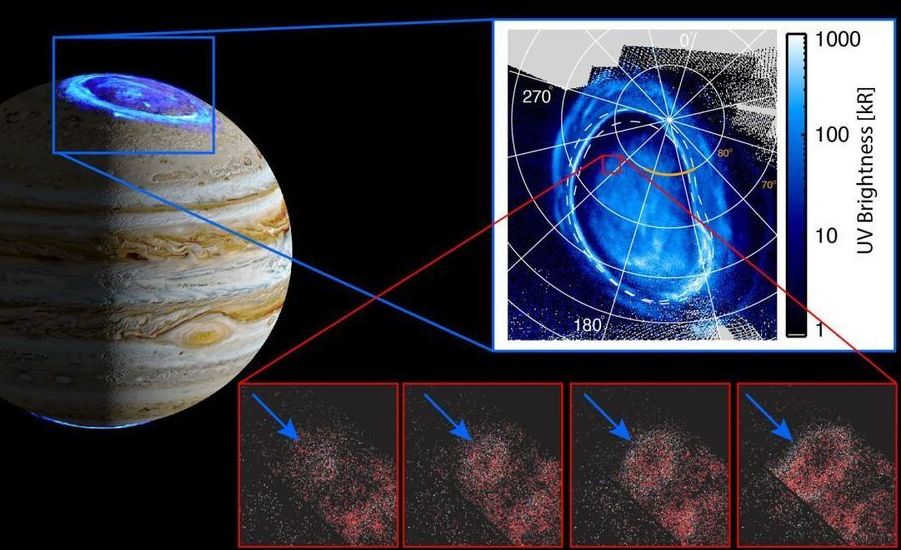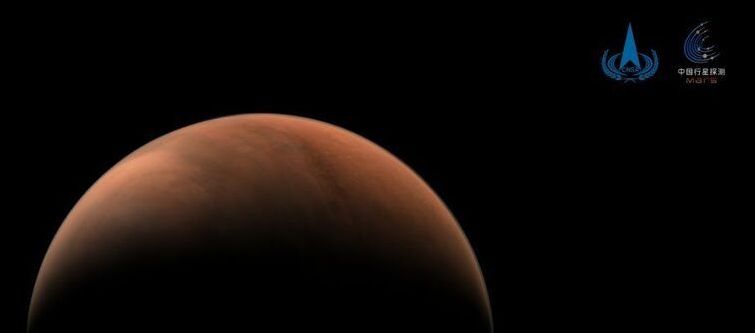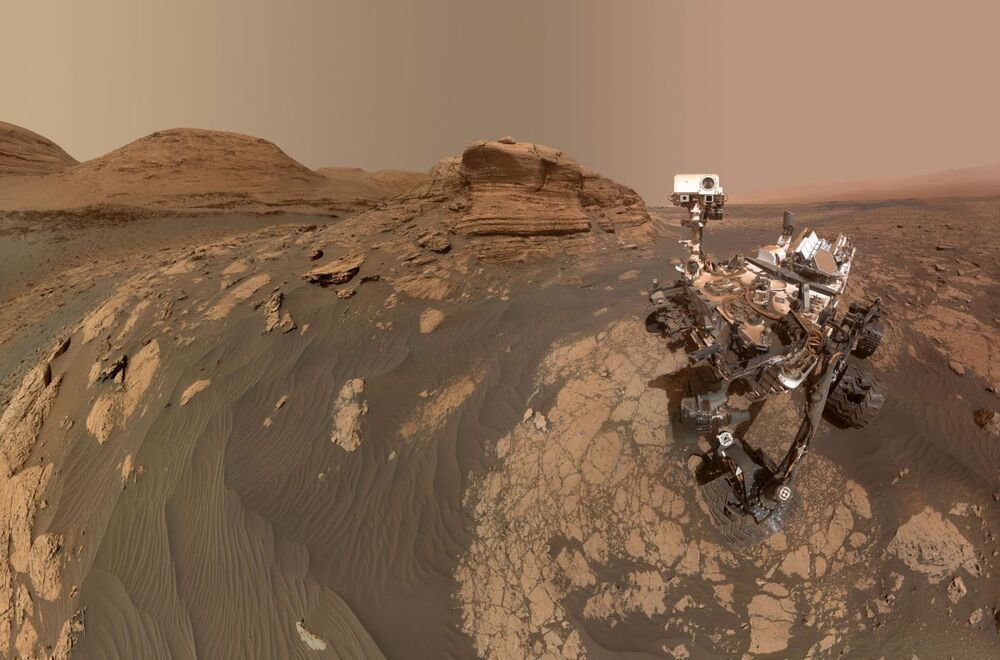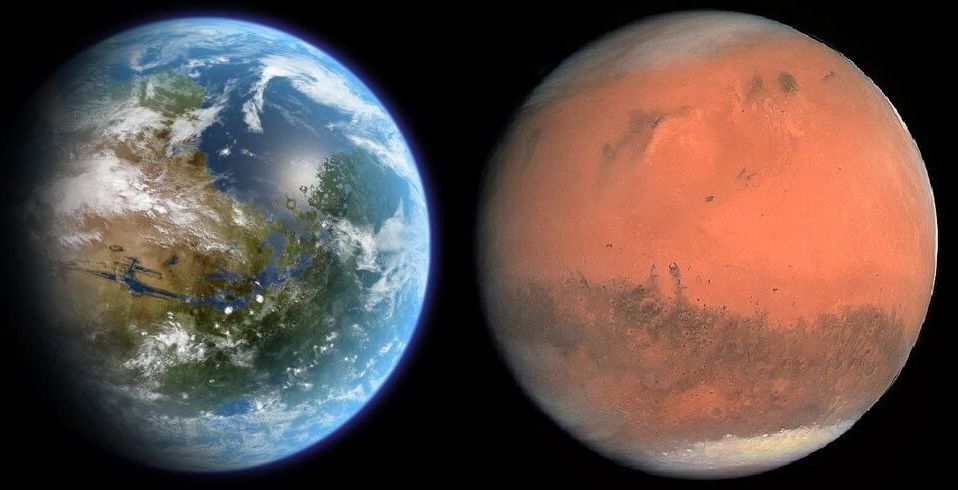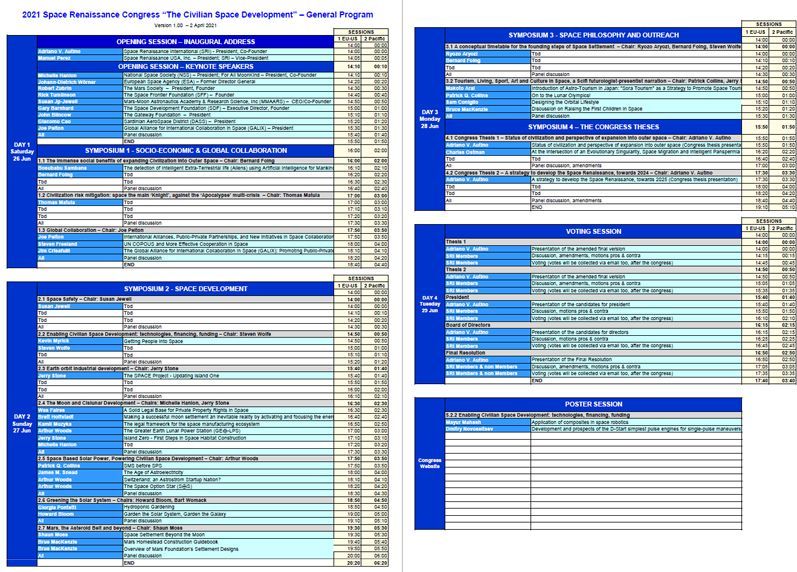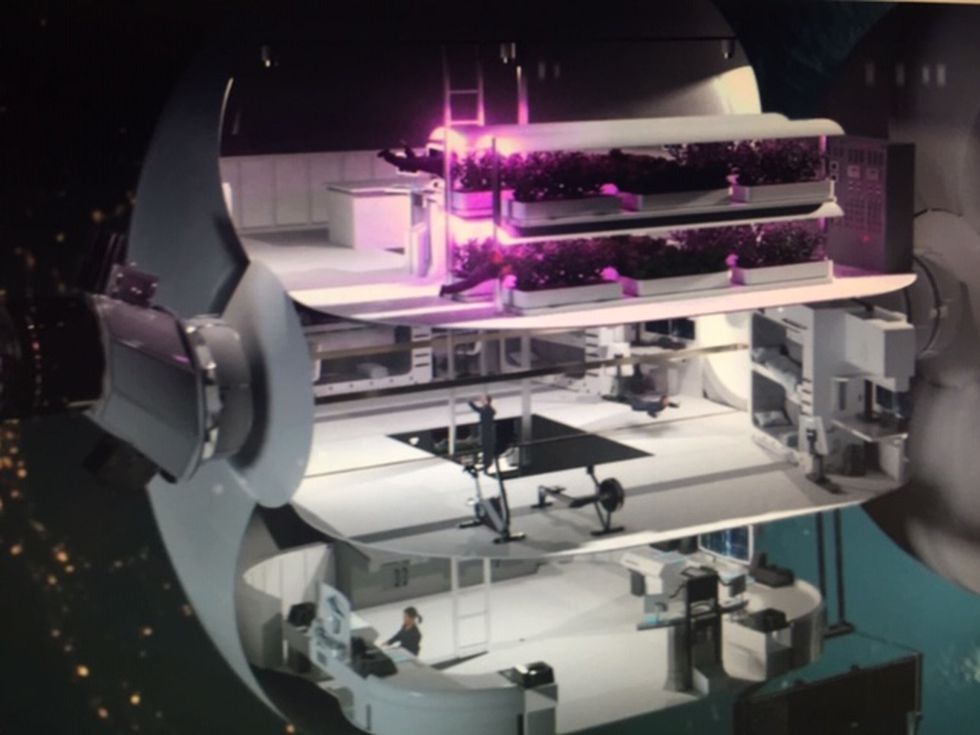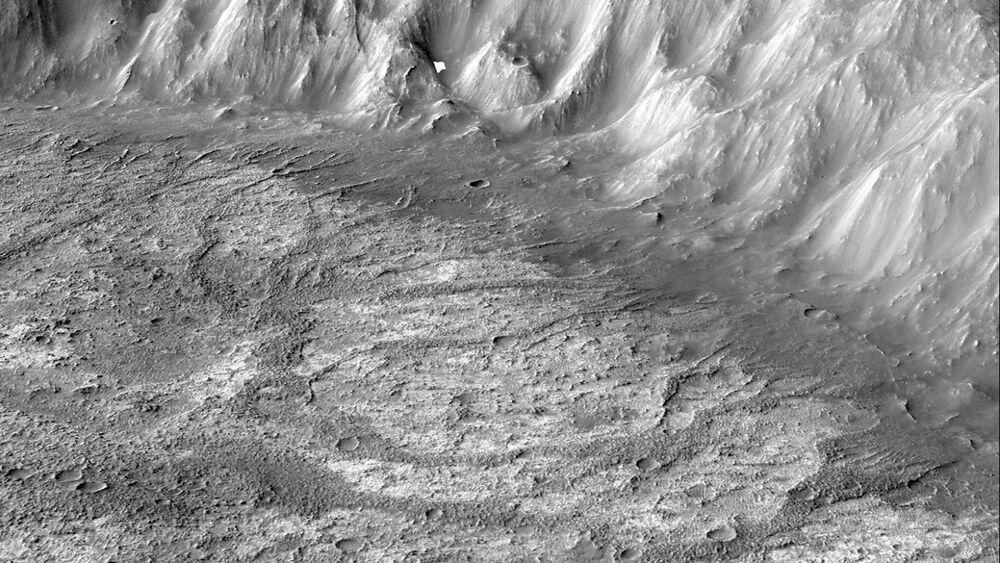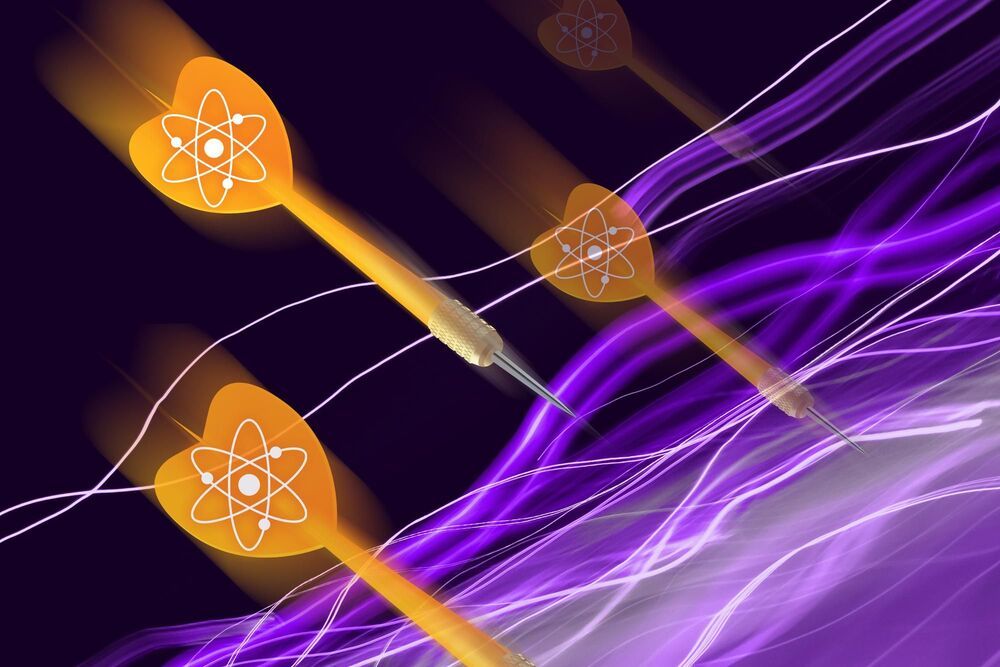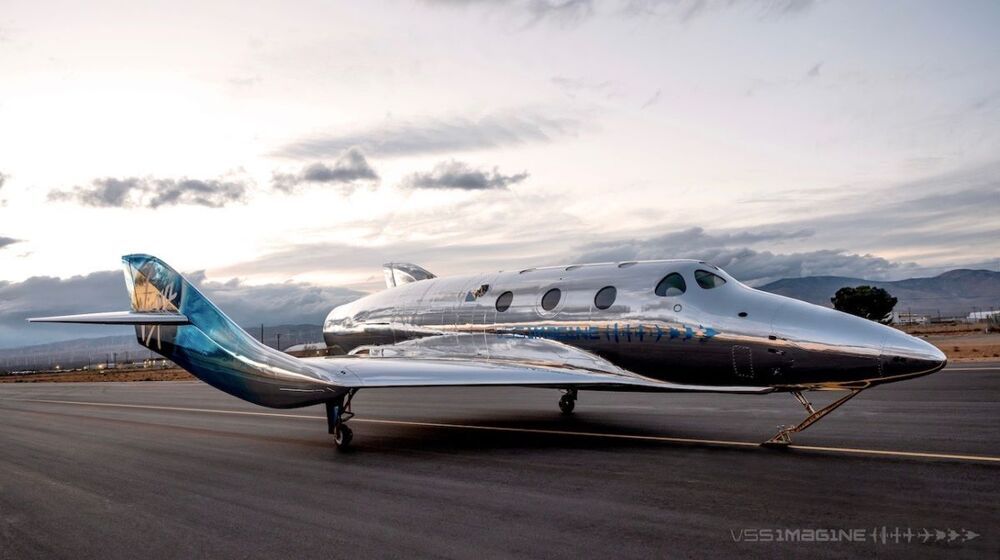NASA’s Juno spacecraft captured a new aurora feature on Jupiter that is characterized by faint ring-shaped emissions that expand rapidly over time. These auroral emissions are believed to be triggered by charged particles coming from the edge of the planet’s magnetosphere.
NASA’s Juno mission has detected new auroral emissions on Jupiter which appear to ripple over the planet’s poles.
The Ultraviolet Spectrograph (UVS) on the Juno spacecraft captured this glowing phenomenon, which is characterized by faint ring-shaped emissions that expand rapidly over time at speeds between 2 and 4.8 miles per second (3.3 and 7.7 kilometers per second). Researchers from the Southwest Research Institute (SwRI), where Juno’s UVS instrument was built, suggest these auroral emissions are triggered by charged particles coming from the edge of Jupiter’s massive magnetosphere, according to a statement from the institute.
